
Bourail: The Heart of New Caledonia's Natural Beauty
Bourail, located on the west coast of New Caledonia's main island, Grande Terre, is a paradise for nature lovers and adventure seekers. This charming town is surrounded by lush landscapes, rolling hills, and pristine beaches that offer a perfect blend of relaxation and excitement. The town itself is steeped in history, with a rich cultural heritage that dates back to its founding in the 19th century. Visitors can explore the Bourail Museum to learn about the local Kanak culture and the colonial past of the area. The nearby Gouaro Deva domain is a must-visit for those interested in both history and nature, offering hiking trails with panoramic views and access to the lagoon, which is a UNESCO World Heritage site. Bourail is also known for its stunning natural attractions. The iconic Roche Percée, a rock formation with a natural arch, is a popular spot for photography and picnics. Nearby, the Turtle Bay (Baie des Tortues) is a sanctuary for sea turtles, providing a unique opportunity to observe these majestic creatures in their natural habitat. For the adventurous, Bourail offers excellent surfing conditions at La Roche beach and thrilling off-road experiences in the surrounding mountains. Gastronomy in Bourail is another highlight, with local restaurants serving up delicious New Caledonian cuisine, which is a fusion of French and Melanesian flavors. Fresh seafood, tropical fruits, and locally-grown produce feature prominently on the menus, providing a delightful culinary experience for visitors.
Local tips in Bourail
- Visit the Bourail Museum to get a deeper understanding of the town's history and Kanak culture.
- Don't miss the chance to hike in the Gouaro Deva domain for breathtaking views and access to the UNESCO World Heritage-listed lagoon.
- Bring your camera to capture the stunning Roche Percée rock formation.
- Plan a visit to Turtle Bay to observe sea turtles in their natural habitat, especially during the nesting season.
- Try the local cuisine at Bourail's restaurants, which offer a unique blend of French and Melanesian flavors.
- For adventure enthusiasts, explore the off-road trails in the surrounding mountains and enjoy surfing at La Roche beach.
Bourail: The Heart of New Caledonia's Natural Beauty
Bourail, located on the west coast of New Caledonia's main island, Grande Terre, is a paradise for nature lovers and adventure seekers. This charming town is surrounded by lush landscapes, rolling hills, and pristine beaches that offer a perfect blend of relaxation and excitement. The town itself is steeped in history, with a rich cultural heritage that dates back to its founding in the 19th century. Visitors can explore the Bourail Museum to learn about the local Kanak culture and the colonial past of the area. The nearby Gouaro Deva domain is a must-visit for those interested in both history and nature, offering hiking trails with panoramic views and access to the lagoon, which is a UNESCO World Heritage site. Bourail is also known for its stunning natural attractions. The iconic Roche Percée, a rock formation with a natural arch, is a popular spot for photography and picnics. Nearby, the Turtle Bay (Baie des Tortues) is a sanctuary for sea turtles, providing a unique opportunity to observe these majestic creatures in their natural habitat. For the adventurous, Bourail offers excellent surfing conditions at La Roche beach and thrilling off-road experiences in the surrounding mountains. Gastronomy in Bourail is another highlight, with local restaurants serving up delicious New Caledonian cuisine, which is a fusion of French and Melanesian flavors. Fresh seafood, tropical fruits, and locally-grown produce feature prominently on the menus, providing a delightful culinary experience for visitors.
When is the best time to go to Bourail?
Iconic landmarks you can’t miss
Sheraton New Caledonia Deva Spa & Golf Resort
Discover a luxurious tropical haven at Sheraton New Caledonia Deva Spa & Golf Resort, where relaxation meets adventure in stunning natural surroundings.

Betikure Parc Lodge
Discover tranquility and adventure at Betikure Parc Lodge, a stunning hotel in Bourail, New Caledonia, perfect for nature lovers and relaxation seekers.
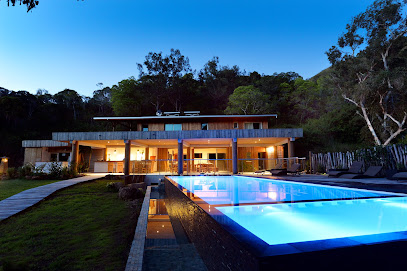
Fort Teremba
Explore the historical significance of Fort Teremba in New Caledonia, a captivating heritage landmark filled with rich cultural narratives and stunning views.
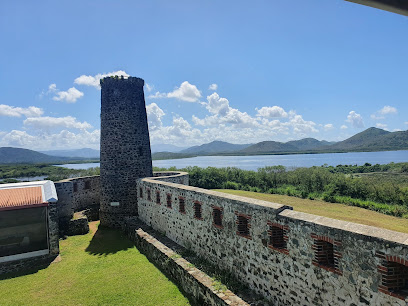
Auberge de Jeunesse de Poé
Explore the stunning beaches and rich culture of New Caledonia from Auberge de Jeunesse de Poé, your ideal hostel in Bourail.

Domaine de Deva
Discover the luxurious escape of Domaine de Deva, where stunning landscapes meet unparalleled leisure in New Caledonia.
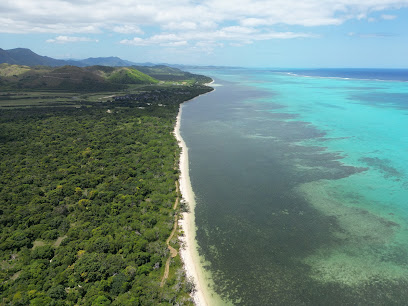
Ouest Corail
Discover the stunning marine beauty of New Caledonia with Ouest Corail's exceptional boat tours at Poe Beach, perfect for all adventure seekers.
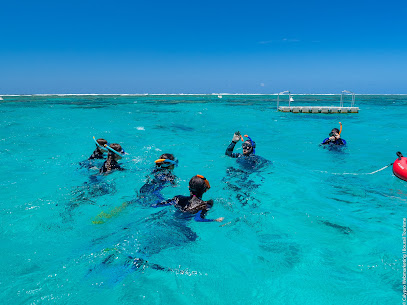
Poe Beach
Discover the serene beauty of Poe Beach in New Caledonia, where turquoise waters and soft sands create a tropical paradise for relaxation and adventure.
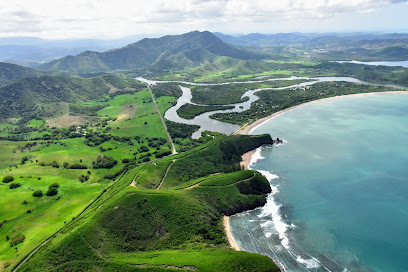
Poé Côté Lagon Beach Bungalows - Hébergements
Discover a peaceful retreat at Poé Côté Lagon Beach Bungalows, where relaxation meets adventure in the heart of New Caledonia's natural beauty.
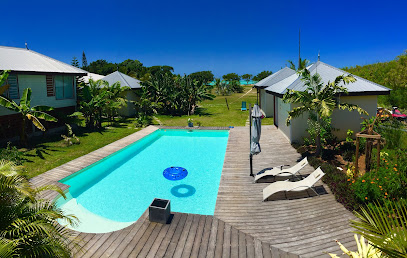
Bonhomme de Bourail (rock formation)
Explore the stunning Bonhomme de Bourail rock formation, a natural landmark steeped in legend and surrounded by breathtaking scenery in New Caledonia.
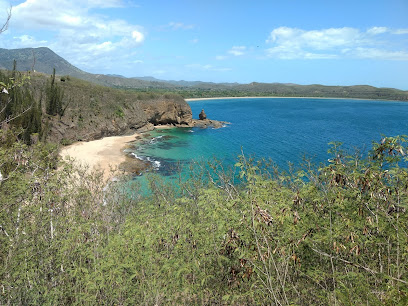
Poé Camping Ground
Discover the tranquility of Poé Camping Ground, a serene retreat on New Caledonia's stunning Poé Beach, perfect for nature lovers and adventure seekers.

Le Jardin De Poé
Discover the flavors of New Caledonia at Le Jardin De Poé, a family-friendly restaurant offering delicious local cuisines in a serene setting.
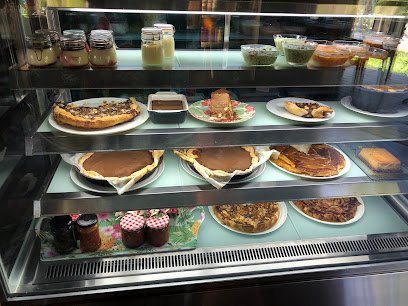
Musee De Bourail
Explore the rich heritage and captivating stories of New Caledonia at Musée de Bourail, a cultural gem in the heart of Bourail.
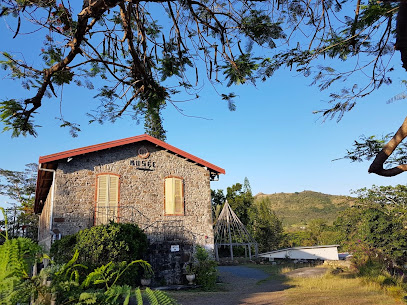
Nekweta
Discover the serene beauty of Nekweta, a tranquil cottage retreat in New Caledonia, perfect for relaxation and adventure amidst stunning landscapes.
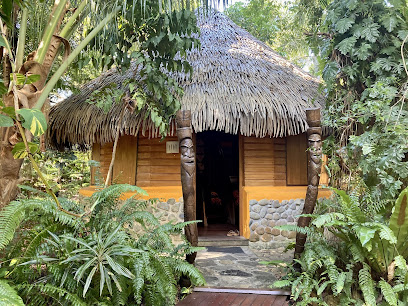
Baie des Tortues Lookout Point
Experience the mesmerizing beauty of Baie des Tortues Lookout Point, a scenic gem in New Caledonia, perfect for breathtaking views and relaxation.
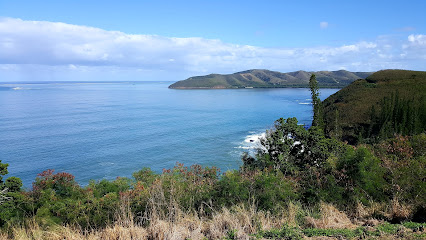
Base Nautique Poé Fun Loc
Discover your next aquatic adventure at Base Nautique Poé Fun Loc, the ultimate destination for water sports rentals in New Caledonia.
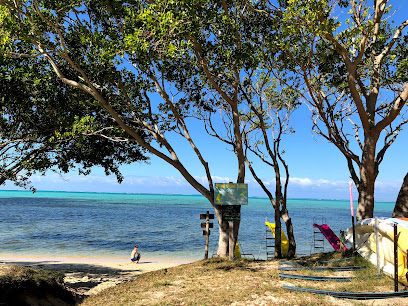
Unmissable attractions to see
Parc provincial des Grandes Fougères
Explore the breathtaking landscapes and rich biodiversity of Parc Provincial des Grandes Fougères, New Caledonia's stunning national park.
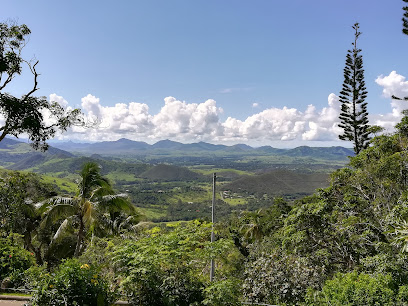
Fort Teremba
Discover the rich colonial history at Fort Teremba, a captivating heritage museum in Mouidou, New Caledonia, showcasing the island's intriguing past.
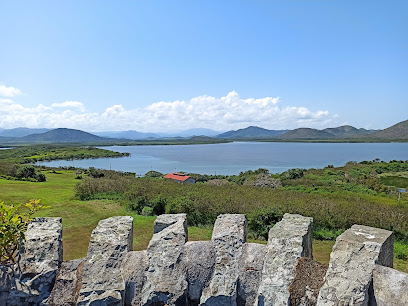
Plage de la Roche Percée
Experience the pristine beauty of Plage de la Roche Percée in New Caledonia, where white sands meet turquoise waters for an unforgettable escape.
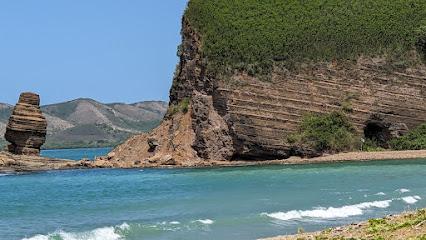
Air Paradise
Experience the thrill of flying at Air Paradise in Poe Beach, New Caledonia, where adventure meets stunning coastal beauty.
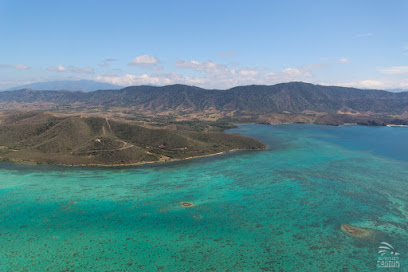
Baie des Tortues Lookout Point
Discover the stunning views and tranquil beauty of Baie des Tortues Lookout Point in Bourail, New Caledonia, a must-visit for nature lovers.
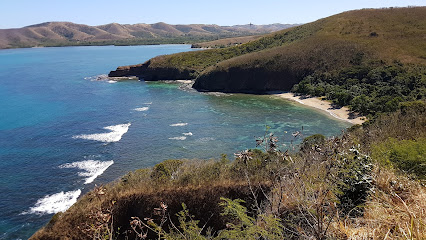
Baie des amoureux
Discover Baie des Amoureux, a tranquil nature preserve in New Caledonia, where vibrant ecosystems and stunning landscapes await your exploration.
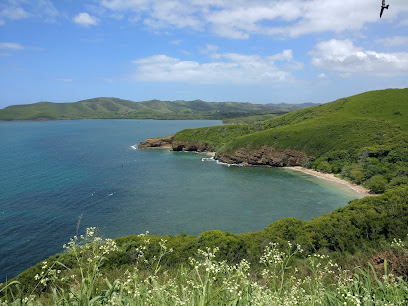
Vertical Lagon Poé
Explore the breathtaking beauty of Vertical Lagon Poé, a tropical paradise offering thrilling water sports and serene relaxation in New Caledonia.
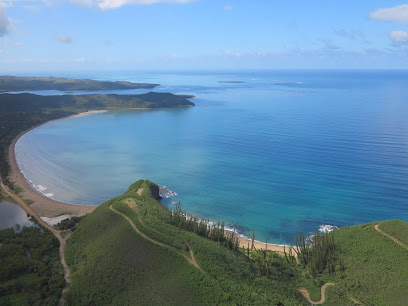
Cascade de Ba
Discover the beauty of Cascade de Ba, a breathtaking waterfall in Ba, New Caledonia, perfect for nature lovers and adventure seekers alike.
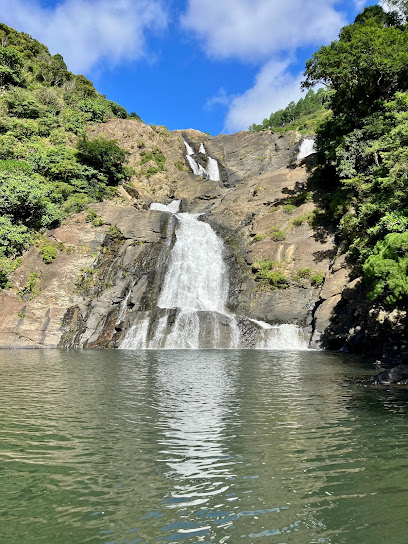
Gecko Evasion
Explore Gecko Evasion in Bourail, New Caledonia - a stunning tourist attraction that showcases the region's unique wildlife and breathtaking natural beauty.
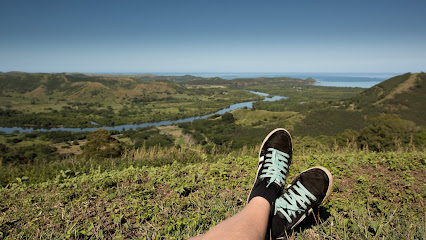
Église catholique Sacré-Cœur-de-Jésus à Bourail
Discover the spiritual beauty of Église catholique Sacré-Cœur-de-Jésus in Bourail, a breathtaking blend of culture, history, and serene ambiance.
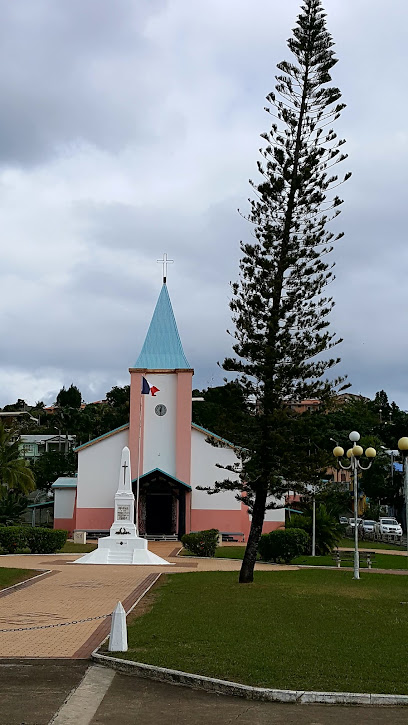
Distillerie de Nessadiou
Explore the craftsmanship of local rum at Distillerie de Nessadiou in Bourail, New Caledonia, where tradition meets flavor.
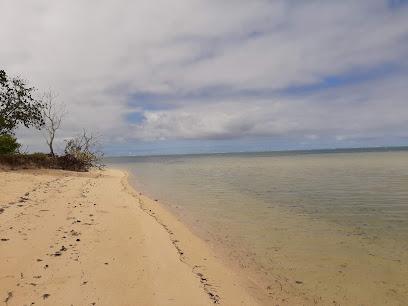
Distillerie de Nessadiou
Experience the unique flavors and rich heritage of New Caledonia at Distillerie de Nessadiou, a charming distillery in Bourail.
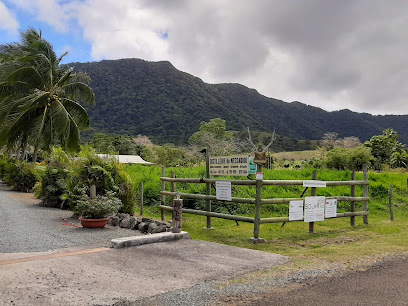
Essential places to dine
Hôtel Restaurant Hibiscus Koné
Experience exquisite dining and luxurious relaxation at Hôtel Restaurant Hibiscus Koné - your gateway to New Caledonia's beauty.
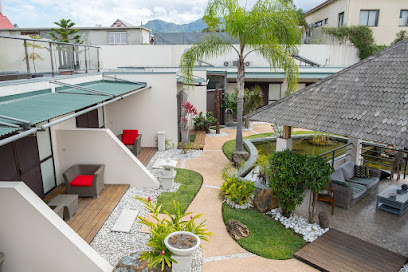
O'Fada
Experience authentic New Caledonian flavors at O'Fada in Bourail – where local ingredients meet culinary creativity.
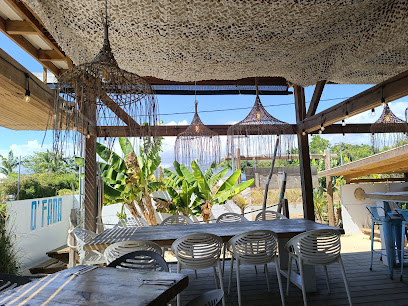
Pizza Nera
Discover Pizza Nera in Roche Percée - where delicious pizzas meet breathtaking views in New Caledonia.
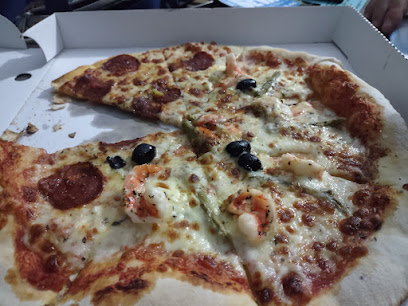
Le Jardin De Poé
Experience local flavors at Le Jardin De Poé in Bourail - A family-friendly culinary haven amidst breathtaking scenery.
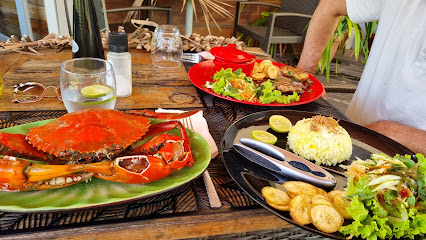
Ô soleil de la Foa
Discover the vibrant flavors of New Caledonia at Ô soleil de la Foa - where local ingredients meet culinary excellence.
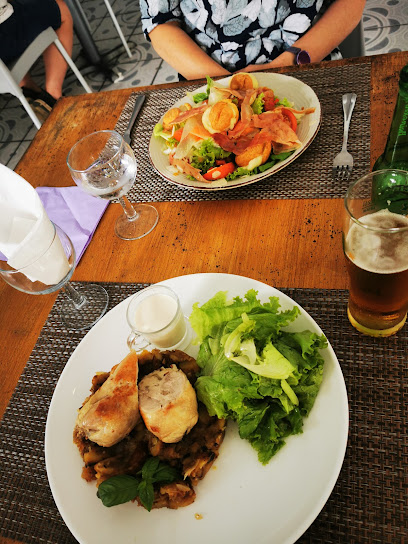
Hotel La Nera
Discover exquisite flavors at Hotel La Nera – where New Caledonia’s culinary heritage meets modern dining in a vibrant setting.
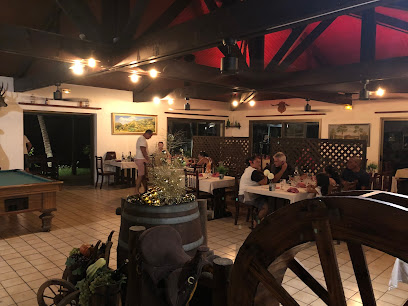
L'Alizee Snack and Bar
Experience delicious local cuisine at L'Alizee Snack and Bar on Poe Beach - where tropical flavors meet breathtaking views.
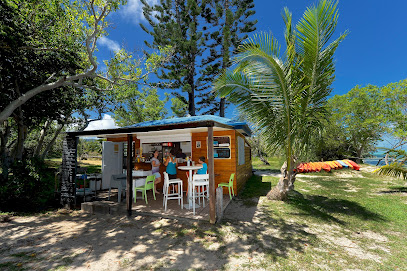
Stonegrill Steakhouse Koné
Discover culinary excellence at Stonegrill Steakhouse Koné – where every meal is an unforgettable experience amidst stunning New Caledonian scenery.
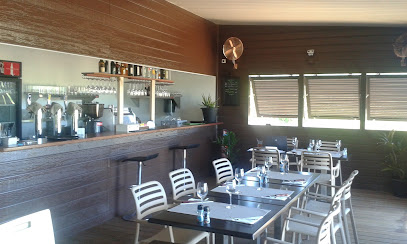
Lodge Terre de Soleil
Discover tranquility at Lodge Terre de Soleil in Farino, where nature meets comfort with exquisite dining experiences.
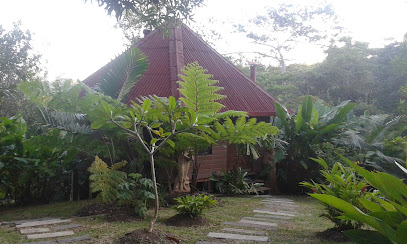
Sweet Café
Experience the flavors of New Caledonia at Sweet Café in Bourail – where local cuisine meets inviting ambiance.
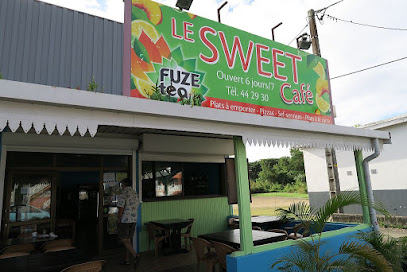
Au P'tit Gourmet
Discover Au P'tit Gourmet in Bourail: A fast food paradise serving up local flavors with every bite.
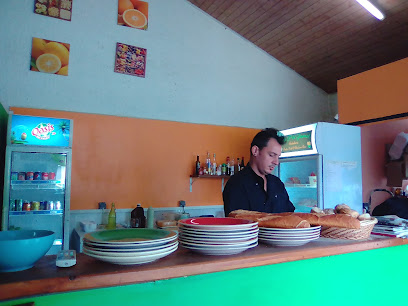
Sand Beach Grill
Experience mouthwatering grilled cuisine with breathtaking ocean views at Sand Beach Grill in beautiful New Caledonia.
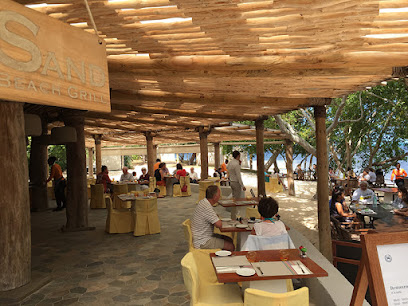
Chez Marco&Co
Discover fast food delights at Chez Marco&Co in La Roche Percée, where quick bites meet breathtaking scenery in New Caledonia.
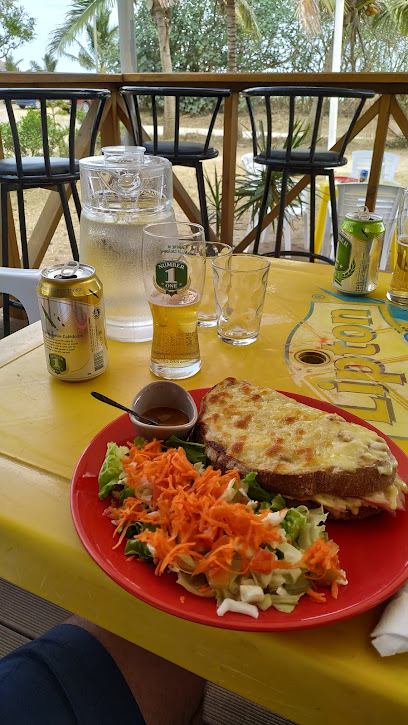
la table du banian
Discover authentic New Caledonian flavors at La Table du Banian—where culinary tradition meets modern dining in La Foa.
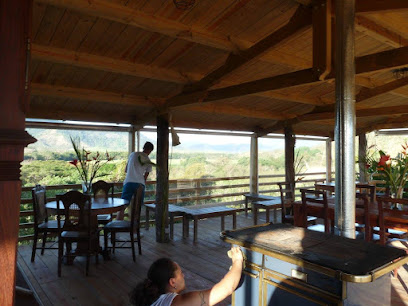
Épicerie de Poé
Discover local delicacies at Épicerie de Poé, your go-to grocery store and takeout restaurant near Plage de Poé in New Caledonia.
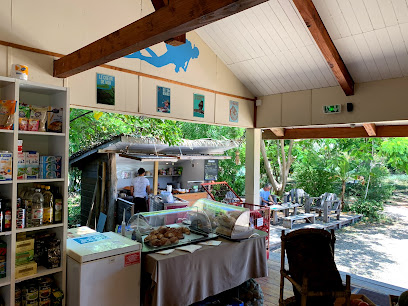
Markets, malls and hidden boutiques
Betikure Parc Lodge
Discover the serene beauty of Betikure Parc Lodge, a perfect retreat in New Caledonia for relaxation and adventure amidst nature's splendor.
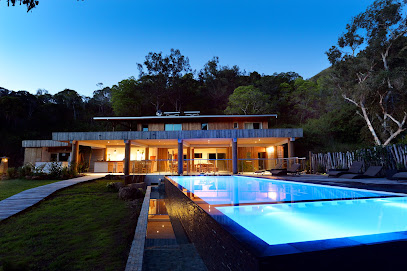
Épicerie de Poé
Discover Épicerie de Poé, a charming grocery store and takeout restaurant near Plage de Poé, perfect for tasting local New Caledonian flavors.
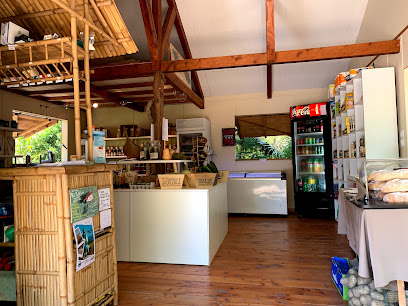
Leader Price
Discover unbeatable prices and a wide selection of local and international products at Leader Price, Bourail's top discount supermarket.
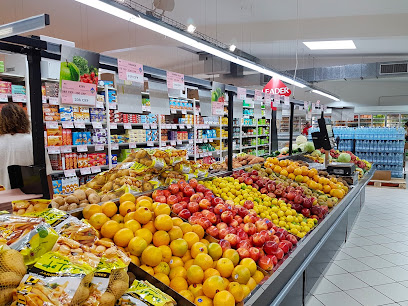
Chez Fred
Indulge in authentic New Caledonian pastries at Chez Fred, Bourail's cherished bakery known for its warm atmosphere and delightful baked goods.
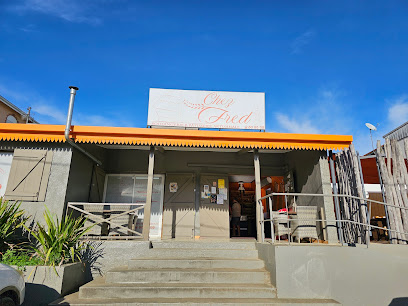
Bourail Discount
Explore the vibrant flavors of New Caledonia at Bourail Discount, your go-to supermarket for local goods and international favorites.
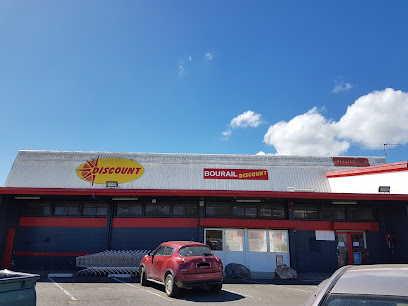
Le Passage
Discover the flavors of New Caledonia at Le Passage, a charming food store in Bourail offering fresh produce and local delicacies.
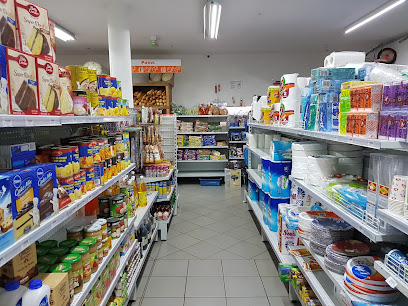
Alimentation Le Djebel
Explore Alimentation Le Djebel in Nessadiou for a unique shopping experience combining local fashion and fresh grocery delights.
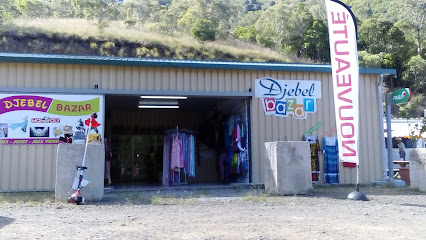
BOULANGERIE PATISSERIE CARAMEL
Discover the delightful flavors of Boulangerie Patisserie Caramel in Bourail, New Caledonia, where artisanal baking meets local charm.
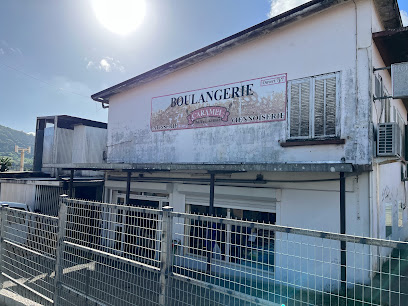
BOUCHERIE AU VEAU GRAS
Experience the rich flavors of New Caledonia at Boucherie au Veau Gras, a premier butcher shop deli in Bourail, renowned for its quality meats and local specialties.
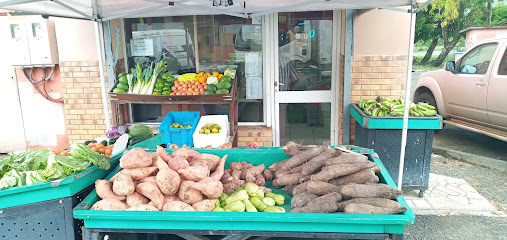
Bourail Bazar
Explore Bourail Bazar, a vibrant variety store in New Caledonia, offering unique local products and a taste of island culture.
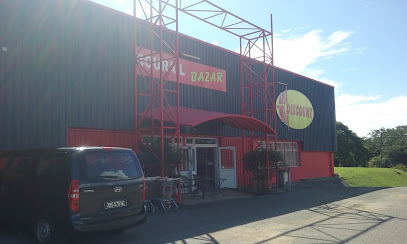
Le Fin Gourmet
Discover the taste of New Caledonia at Le Fin Gourmet—your premier butcher shop deli in Bourail, offering exquisite local meats and gourmet delights.
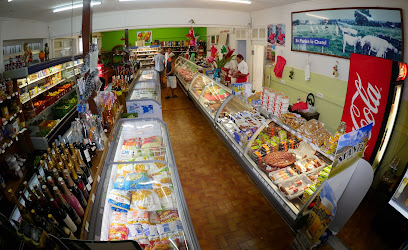
Discount NERA
Explore local flavors and essentials at Discount NERA, the charming supermarket in Bourail, New Caledonia.
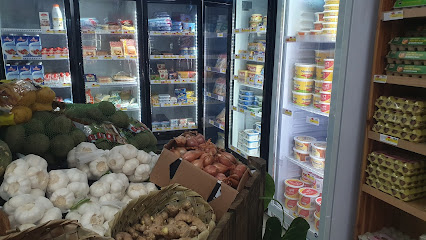
Quincaillerie de Bourail
Discover the charm of Quincaillerie de Bourail, your go-to hardware store for unique finds and local craftsmanship in New Caledonia.

Bourail Electronic
Explore the latest electronics and gadgets at Bourail Electronic, your trusted source in New Caledonia for tech solutions and expert advice.
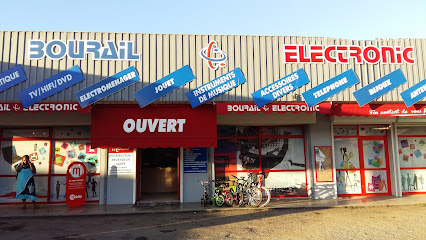
Bourail Wine Shop
Explore the unique wine selections of New Caledonia at Bourail Wine Shop, where local charm meets exquisite flavors.
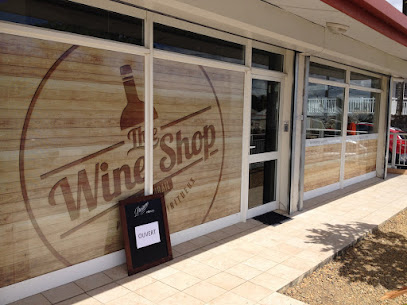
Essential bars & hidden hideouts
O'Fada
Experience the authentic taste of New Caledonia at O'Fada, a vibrant restaurant in Bourail with stunning views and a welcoming atmosphere.
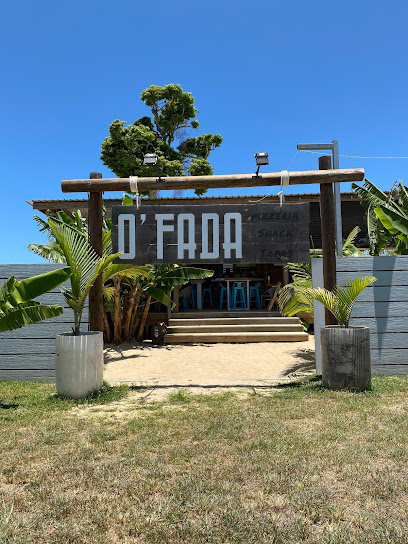
Le Jardin De Poé
Discover the flavors of New Caledonia at Le Jardin De Poé, a family-friendly restaurant offering delightful dishes in a stunning natural setting.
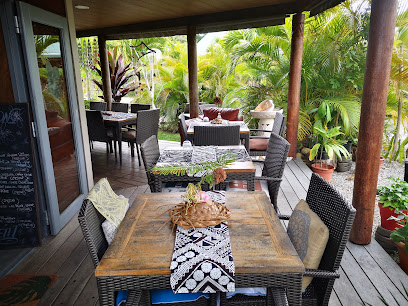
Hotel La Nera
Discover authentic New Caledonian cuisine at Hotel La Nera, where local flavors meet a warm and inviting atmosphere.
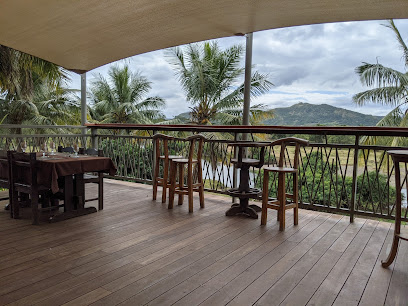
L'Alizee Snack and Bar
Discover the flavors of New Caledonia at L'Alizee Snack and Bar, where ocean views and delicious dishes create an unforgettable dining experience.
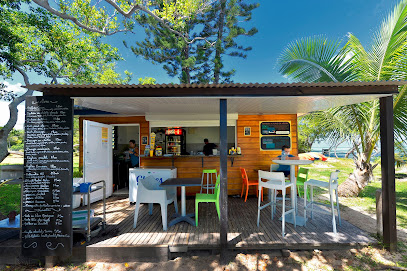
Sweet Café
Experience the delightful flavors of New Caledonia at Sweet Café in Bourail, where local ingredients meet international cuisine in a cozy setting.
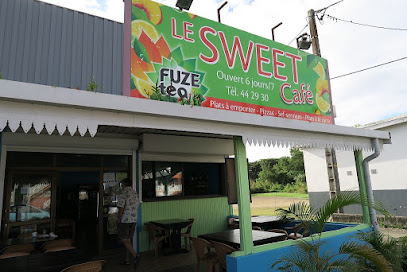
Au P'tit Gourmet
Discover delicious local and fast food delights at Au P'tit Gourmet in Bourail, New Caledonia, perfect for tourists seeking tasty meals.
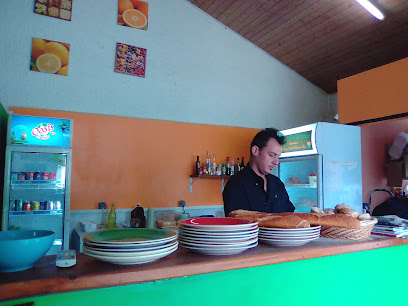
Chez Marco&Co
Discover the vibrant fast food scene at Chez Marco&Co in La Roche Percée, New Caledonia, where every meal is a flavorful delight.
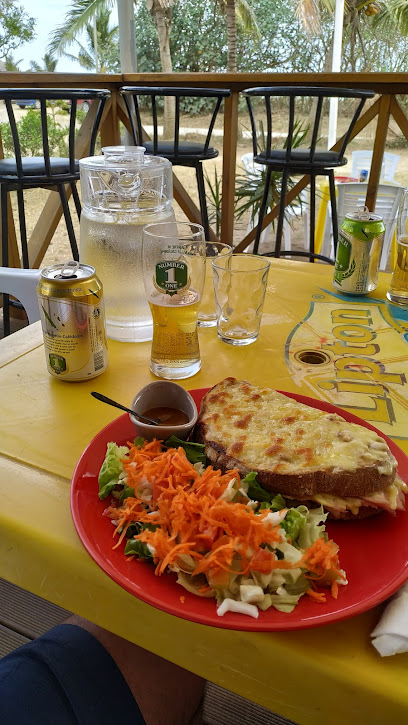
Sand Beach Grill
Experience the vibrant culinary scene of New Caledonia at Sand Beach Grill, where delicious grilled dishes meet stunning coastal views.
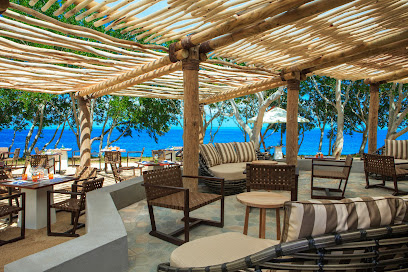
Snack Hibiscus
Discover the culinary delights of Snack Hibiscus in Bourail, where local flavors meet a warm and inviting atmosphere for an unforgettable dining experience.
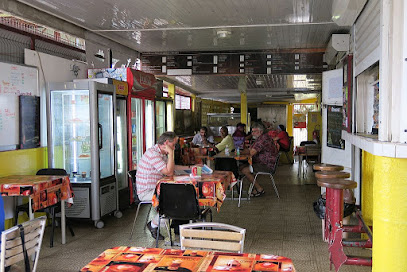
Motu Restaurant
Experience the essence of New Caledonia at Motu Restaurant, where local flavors and stunning views come together for an unforgettable culinary journey.
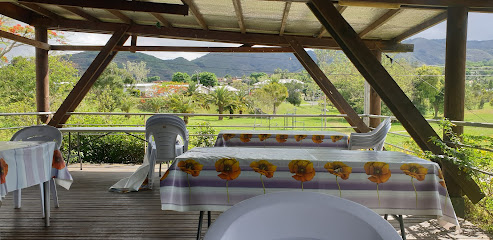
Creek Bar
Discover the vibrant atmosphere of Creek Bar in New Caledonia, where local flavors and lively nights come together for an unforgettable experience.
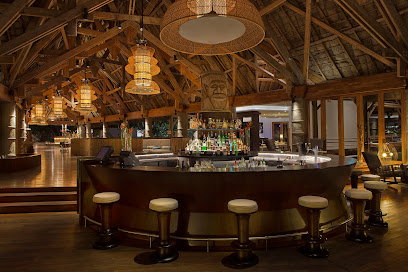
La restauration bouraillaise
Savor authentic New Caledonian cuisine at La Restauration Bouraillaise, a must-visit restaurant in Bourail offering a unique dining experience.
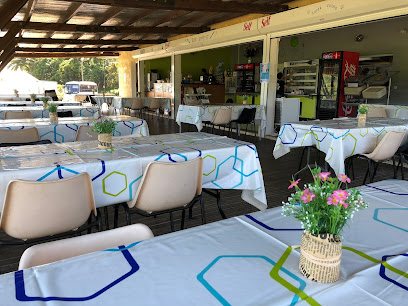
Reef
Experience the culinary charm of Reef in New Caledonia, where exquisite flavors meet stunning natural beauty, perfect for every discerning palate.
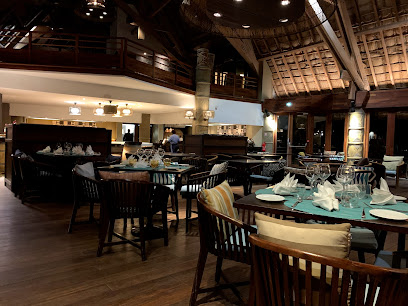
Bourail
Experience the charm of Bourail with delectable breakfasts overlooking stunning lagoons in New Caledonia's serene coastal paradise.
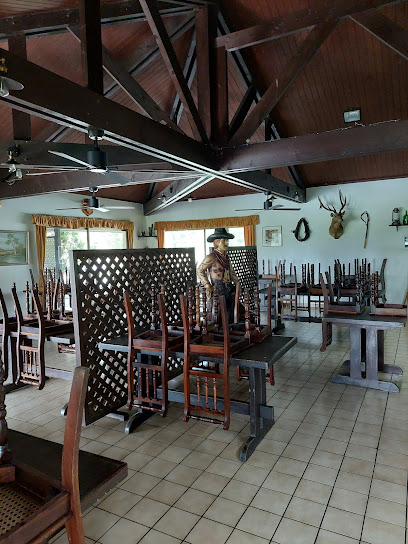
Chez Tess
Discover the delightful fast-food experience at Chez Tess in Bourail, New Caledonia, where local flavors meet quick service.
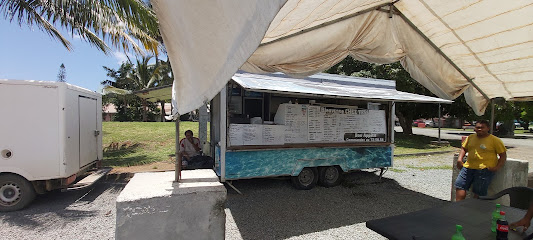
Local Phrases
-
- HelloBonjour
[bon-zhoor] - GoodbyeAu revoir
[oh ruh-vwahr] - YesOui
[wee] - NoNon
[nohn] - Please/You're welcomeS'il vous plaît/De rien
[seel voo pleh/duh ryen] - Thank youMerci
[mehr-see] - Excuse me/SorryExcusez-moi/Désolé
[ex-koo-zay mwa/deh-zoh-lay] - How are you?Comment ça va?
[koh-mohn sah vah] - Fine. And you?Bien. Et vous?
[byen. ay voo] - Do you speak English?Parlez-vous anglais?
[par-lay voo ahn-glay] - I don't understandJe ne comprends pas
[zhuh nuh kohm-prahn pah]
- HelloBonjour
-
- I'd like to see the menu, pleaseJe voudrais voir le menu, s'il vous plaît
[zhuh voo-dray vwahr luh muh-new, seel voo pleh] - I don't eat meatJe ne mange pas de viande
[zhuh nuh mahnj pah duh vee-and] - Cheers!Santé!
[sahn-tay] - I would like to pay, pleaseJe voudrais payer, s'il vous plaît
[zhuh voo-dray pay-ay, seel voo pleh]
- I'd like to see the menu, pleaseJe voudrais voir le menu, s'il vous plaît
-
- Help!Au secours!
[oh suh-koor] - Go away!Allez-vous en!
[ah-lay vooz ahn] - Call the Police!Appelez la police!
[ah-peh-lay lah poh-lees] - Call a doctor!Appelez un médecin!
[ah-peh-lay uh may-deh-sahn] - I'm lostJe suis perdu
[zhuh swee pair-doo] - I'm illJe suis malade
[zhuh swee mah-lahd]
- Help!Au secours!
-
- I'd like to buy...Je voudrais acheter...
[zhuh voo-dray zah-shay...] - I'm just lookingJe regarde juste
[zhuh ruh-gard zhust] - How much is it?Combien ça coûte?
[kohm-byen sah koot] - That's too expensiveC'est trop cher
[say troh shair] - Can you lower the price?Pouvez-vous baisser le prix?
[poo-veh voo bay-say luh pree]
- I'd like to buy...Je voudrais acheter...
-
- What time is it?Quelle heure est-il?
[kell ur ay eel] - It's one o'clockIl est une heure
[eel ay oon ur] - Half past (10)Dix et demie
[dee-ayz ay duh-mee] - MorningMatin
[mah-tahn] - AfternoonAprès-midi
[ah-pray mee-dee] - EveningSoir
[swahr] - YesterdayHier
[yehr] - TodayAujourd'hui
[oh-zhoor dewee] - TomorrowDemain
[duh-mahn] - 1Un
[uhn] - 2Deux
[duh] - 3Trois
[twah] - 4Quatre
[kah-truh] - 5Cinq
[sank] - 6Six
[sees] - 7Sept
[set] - 8Huit
[weet] - 9Neuf
[nuff] - 10Dix
[dee]
- What time is it?Quelle heure est-il?
-
- Where's a/the...?Où est...?
[oo ay...] - What's the address?Quelle est l'adresse?
[kell ay la-dress] - Can you show me (on the map)?Pouvez-vous me montrer (sur la carte)?
[poo-veh voo muh mohn-tray (soor lah kart)] - When's the next (bus)?Quand est le prochain (bus)?
[kohnd ay luh proh-shahn (bus)] - A ticket (to ....)Un billet (pour ....)
[uhn bee-yay (poor)]
- Where's a/the...?Où est...?
History of Bourail
-
Long before European contact, the region now known as Bourail was inhabited by the Kanak people, the indigenous Melanesian inhabitants of New Caledonia. They lived in harmony with the land and sea, practicing traditional agriculture, fishing, and hunting. Their rich culture included complex social structures, intricate art, and oral traditions passed down through generations.
-
In the 19th century, European explorers and missionaries arrived in the region. The French established a penal colony in New Caledonia in 1864, and Bourail became a significant site for the settlement of convicts. The construction of infrastructure such as roads and buildings began, laying the foundation for the modern town.
-
Bourail's history is closely tied to its role as a penal colony. Between 1867 and 1924, thousands of French convicts were sent to Bourail. They were put to work on various projects, including the construction of the town's roads, bridges, and buildings. The remains of these structures, such as the old prison and the convict cemetery, can still be seen today, serving as a stark reminder of this period.
-
Following the closure of the penal colony, Bourail transitioned into an agricultural hub. The fertile plains and favorable climate made it an ideal location for farming. Cattle ranching, coffee, and coconut plantations thrived, contributing to the economic growth of the region. The annual Bourail Fair, which began in the early 20th century, celebrates this agricultural heritage and remains a major event to this day.
-
During World War II, New Caledonia, including Bourail, played a strategic role as a base for Allied forces in the Pacific theater. The town hosted American and New Zealand troops, who built military installations and infrastructure. The presence of these forces left a lasting impact on the local community and contributed to the cultural exchange between the residents and the soldiers.
-
Bourail is known for its vibrant cultural festivals and traditions that reflect its diverse heritage. The Bourail Fair, held every August, showcases local agriculture, crafts, and Kanak culture. The town also celebrates traditional Kanak ceremonies, where visitors can experience traditional dances, music, and rituals. These events highlight the strong cultural identity and community spirit of Bourail.
-
Today, Bourail is a thriving town that blends its rich history with modern amenities. It is a popular destination for tourists seeking to explore its historical sites, stunning beaches, and lush landscapes. The town continues to honor its past while embracing development, making it a unique and captivating place to visit.
Bourail Essentials
-
Bourail is located on the west coast of New Caledonia's main island, Grande Terre. The nearest international airport is La Tontouta International Airport (NOU) in Nouméa, approximately 160 kilometers south of Bourail. From Nouméa, you can rent a car or take a bus to reach Bourail. The drive typically takes around 2 to 3 hours via the RT1 route. Bus services operated by Carsud also connect Nouméa to Bourail, though schedules may vary.
-
Bourail is a small town, and many attractions are easily accessible on foot or by bicycle. For longer distances, rental cars are the most convenient option, offering flexibility to explore the surrounding areas. Local taxis are available but can be limited. Public transport options include bus services operated by Carsud, which connect Bourail to other towns and villages. It is advisable to check bus schedules in advance.
-
The official currency of New Caledonia is the CFP Franc (XPF). Credit cards are widely accepted in hotels, restaurants, and shops in Bourail, but it's advisable to carry some cash for smaller establishments and local markets. ATMs are available in Bourail where you can withdraw cash. Ensure you have enough local currency, especially if you plan to visit rural areas.
-
Bourail is generally a safe destination for tourists. However, it is always wise to take standard safety precautions. Avoid walking alone at night in unfamiliar areas and keep an eye on your belongings in crowded places. There are no specific high-crime areas targeting tourists, but staying vigilant and aware of your surroundings is recommended.
-
In case of emergency, dial 17 for police, 15 for medical emergencies, and 18 for fire services. Bourail has a local police station, medical facilities, and pharmacies where you can seek assistance. It is essential to have travel insurance that covers medical emergencies. For minor health issues, pharmacies in Bourail offer a range of over-the-counter medications.
-
Fashion: Do dress modestly, especially when visiting religious or cultural sites. Avoid overly revealing clothing. Religion: Do respect local customs and traditions. When visiting places of worship, dress conservatively and act respectfully. Public Transport: Do be respectful to other passengers. Don’t be loud or disruptive on public transport. Greetings: Do greet people with a handshake or a friendly 'Bonjour.' It is polite to greet shopkeepers and service staff when entering establishments. Eating & Drinking: Do try local dishes and accept food offerings graciously. Don’t refuse hospitality, as it is considered impolite.
-
To experience Bourail like a local, visit the local markets where you can buy fresh produce and traditional New Caledonian goods. Engage with locals, as they are often friendly and willing to share stories about the town’s history and culture. Don’t miss visiting La Roche Percée Beach, the Turtle Bay for turtle watching, and the nearby ancient Kanak sites. For a unique experience, participate in a traditional Melanesian feast called ‘Bougna’ and explore the beautiful hiking trails in the region.
Trending Landmark in Bourail
-
Sheraton New Caledonia Deva Spa & Golf Resort
-
Betikure Parc Lodge
-
Fort Teremba
-
Auberge de Jeunesse de Poé
-
Domaine de Deva
-
Ouest Corail
-
Poe Beach
-
Poé Côté Lagon Beach Bungalows - Hébergements
-
Bonhomme de Bourail (rock formation)
-
Poé Camping Ground
-
Le Jardin De Poé
-
Musee De Bourail
-
Nekweta
-
Baie des Tortues Lookout Point
-
Base Nautique Poé Fun Loc
Nearby Cities to Bourail
-
Things To Do in La Foa
-
Things To Do in Hienghène
-
Things To Do in Nouméa
-
Things To Do in Tadine
-
Things To Do in Lenakel
-
Things To Do in Isangel
-
Things To Do in Port Vila
-
Things To Do in Lamap
-
Things To Do in Lakatoro
-
Things To Do in Norsup
-
Things To Do in Luganville
-
Things To Do in Cascade
-
Things To Do in Burnt Pine
-
Things To Do in Kingston
-
Things To Do in Ball Bay








